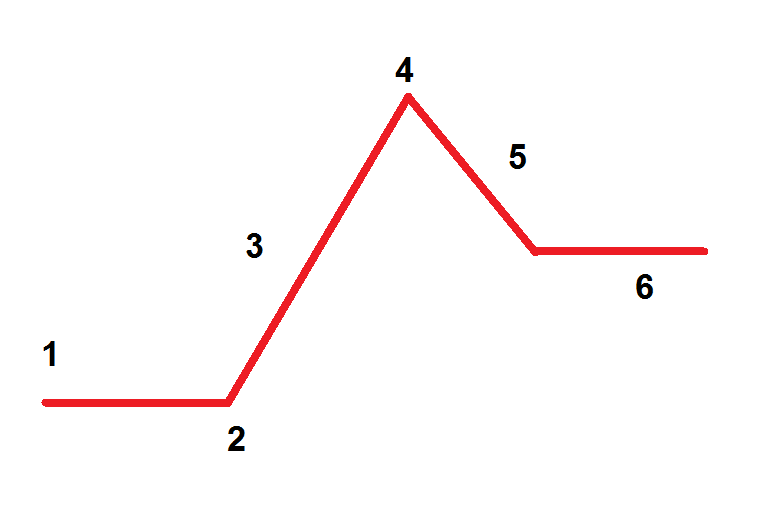What is the main character called? This is the character we connect with the most, the one who has the conflict, and whose conflict is resolved at the climax.
Protagonist
What happens in the introduction of a story?
The reader/viewer is introduced to the setting and the protagonist / character(s).
What is this an example of: a character stepping out into a hurricane and saying, “What nice weather we're having!”
Verbal Irony
What POV is this written in: "You stand before the ancient door, its wood weathered and gray. Your hand trembles as you reach for the knocker, a cold, heavy piece of metal shaped like a serpent."
Second Person
What is it called when the author drops hints to the reader about what MIGHT happen next?
Foreshadowing
What is a static character?
A character who does not undergo a meaningful change to their personality or situation during course of the story.
True or False: All stories follow the same plot diagram and always have all 6 plot points.
False
What type of irony is this: We know that the killer is hiding in the closet, but will the character find out in time?
Dramatic Irony
Answers will vary, but needs to use "I" - me, we, us...
What is the is an overall feeling the reader gets? ______ is created through setting, thoughts, words, and/or actions of the characters and through specific use of devices such as imagery or metaphors.
Mood
What type of character is well-developed, with layered and interesting insight into their personality or life experiences?
Round Character
This is the part of the story that “kicks off” the conflict and, hence, the rising action.
Initiating Event
What is situational irony?
When the opposite of what is expected occurs.
What is Third Person Limited Omniscient?
A narrative perspective that uses third-person pronouns ("he," "she," "they"), but remains focused on the internal thoughts and feelings of ONE character.
What are the 3 types of Conflict? Think: ______ vs. ______
- Person vs. Self
- Person vs. Person
- Person vs. Environment/Society/Fate/Supernatural
This character is usually the 2nd most important character, they are the sidekick of the main character who helps them to solve their problem.
Deuteragonist
What happens at the Climax of a story?
The Climax is the turning point for the character when the reader/viewer learns how the protagonist’s conflict is resolved.
What are the 3 parts of setting?
When, Where and Context
What POV is this quote in: "The man slammed the door shut. The woman beside him sighed, turning to face the window. A car drove past on the street below."
Third Person Objective
What is symbolism?
Using an event, an object, a person, etc. to represent something else. For example: a dove can symbolize peace, hope, or purity in a story.
Create a character foil for Garfield: A lazy, food-obsessed (especially, lasagna), arrogant, selfish, intelligent, sarcastic and witty - but ultimately endearing cat who hates Mondays.
Odie the Dog serves as a character foil for Garfield in the comics. However, the foil should include opposite traits to Garfield's character: energetic, dim-witted/naïve, enthusiastic, good natured, eager to please character.
List all 6 plot points in order! See Diagram below:
Introduction, Initiating Event, Rising Action, Climax, Falling Action, Ending/Conclusion
Give an example of setting context.
Answers will vary: context that creates the social or environmental backdrop for the story. Could be set in: wartime, natural disaster, apocalyptic future, magic exists, animals can talk...
Finish the sentence: The word Omniscient comes from Latin words that mean...
omniscient means "knowledge of all" or "all knowing" in Latin:
omnis ("all") + scientia ("knowledge")
What is Theme and what are the rules when creating a Theme?
A truth, lesson or moral about life that the author wants to reveal or teach. The rules are: themes are implicit (implied) NOT explicit (stated), they are general (apply to everyone), and they are written in the 3rd person as a full sentence (think "one" not "I" or "You").